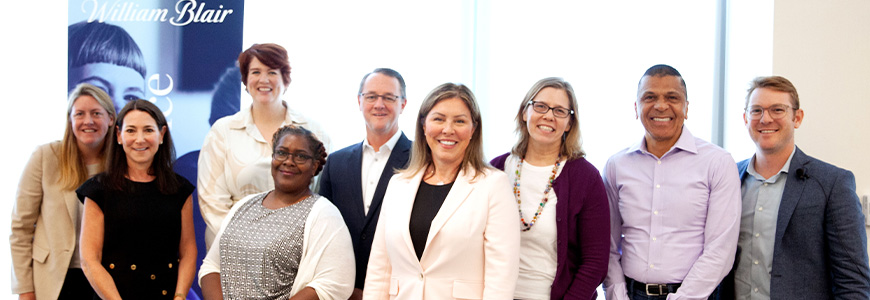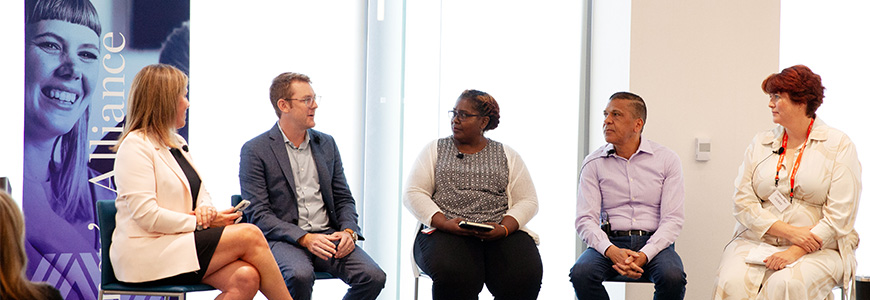
William Blair recently celebrated Women’s Equality Day, bringing together colleagues and community members virtually and in-person for a discussion on the importance of allyship. The event was hosted by William Blair’s Women’s Alliance in conjunction with the ONE, Pride, and Veterans’ Alliances and featured opening remarks from Kelley Szany, Senior Vice President of Education and Exhibitions at the Illinois Holocaust Museum and Educational Center. She was part of a panel discussion moderated by Amber Kennelly, Chief Human Resources Officer at William Blair, along with William Blair Alliance members Pat Gleason, Toya Garcia-Bradow, and Corwin Marbly.
Szany began her remarks by describing the founding principle of the Illinois Holocaust Museum and Education Center: “Remember the Past; Transform the Future.” This theme of how memory and action are tied together was woven throughout her comments as she described the experiences of Holocaust survivors and the allies who risked their own lives to bring others to safety.
She stated that allyship is “an active, consistent, and arduous practice of unlearning and reevaluating.” Szany also challenged the audience to think about how their actions, or in some cases inactions, both big and small, will ultimately become part of our collective history. By doing so, we are embracing one of the greatest lessons of the Holocaust—the importance of being an ally.

Following Szany’s remarks, Kennelly opened the panel conversation by asking each of the panelists, “Can you share a time when you have been impacted or supported by an ally?” Their stories ranged from how the William Blair Alliances have supported them over the years to how someone believed in them when no one else did and the positive impact that had on their future. The panelists’ responses were incredibly empowering and reminded the audience that one seemingly small act of kindness can change the course of someone else’s life for the better.
The panelists each brought unique perspectives on what it means to be an ally and how people can become allies. For some, allyship might be recognizing when and where you have privilege and how you can use your privilege to create an inclusive environment for those around you. For others, it might look like having a genuine conversation with someone so you can learn more about their background and views—there is no right or wrong way to exhibit compassion and understanding.
Throughout both Szany’s opening comments and the panel discussion, it was abundantly clear that allyship is as critical to building a just society today as it has ever been; it also can play an integral role in workplace culture. Allyship requires time and effort, but the impact that you can have on someone else far exceeds any perceived inconveniences.


